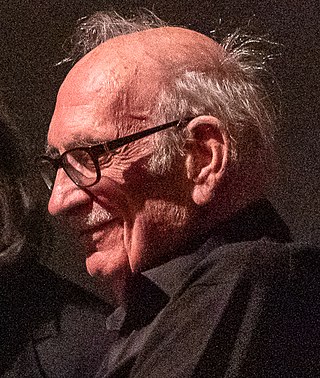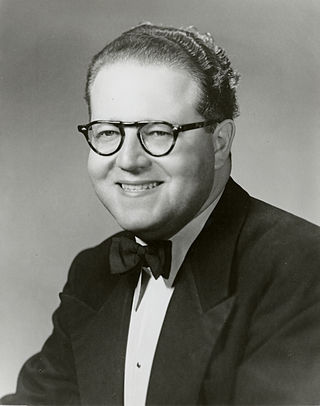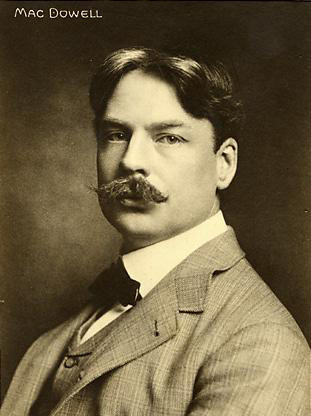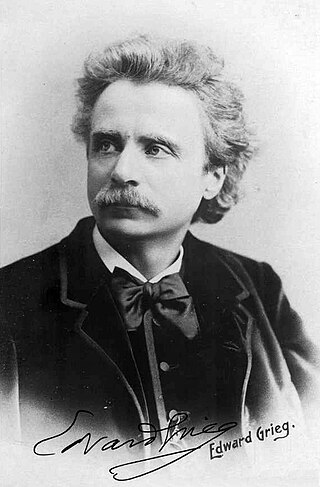
The American Scene is a musical composition consisting of five orchestral suites composed in 1957 by American composer William Grant Still. [1]

The American Scene is a musical composition consisting of five orchestral suites composed in 1957 by American composer William Grant Still. [1]
The composition is described as follows:
[The work depicts] life, scenery, and culture in various parts of the United States. The themes are original ones written in some of the American idioms. The work was commissioned by Adrian Michaelis for The Standard School Broadcasts. Some of the suites aired on the NBC Western Network from 1959 to 1960. [2]
— Erica Neidlinger, The Wind Repertory Project
The collection of suites is as follows:
Suite No. 1 - The East
Suite No. 2 - The Southwest
Suite No. 3 - The Old West
I. Song of the Plainsmen
II. Sioux Love Song (Based on a Sioux Melody)
III. Tribal Dance
Suite No. 4 - The Far West
Suite No. 5 - A Mountain, a Memorial and a Song
I. Grand Teton (A symbol of America's strength)
II. Tomb of the Unknown Soldier ("Our Boys" will never be forgotten)
III. Song of the Rivermen (They sing of the Mississippi)

George Henry Crumb Jr. was an American composer of avant-garde contemporary classical music. Early in his life he rejected the widespread modernist usage of serialism, developing a highly personal musical language which "range[s] in mood from peaceful to nightmarish". Crumb's compositions are known for pushing the limits of technical prowess by way of frequent use of extended techniques. The unusual timbres he employs evoke a surrealist atmosphere which portray emotions of considerable intensity with vast and sometimes haunting soundscapes. His few large-scale works include Echoes of Time and the River (1967), which won the 1968 Pulitzer Prize for Music, and Star-Child (1977), which won the 2001 Grammy Award for Best Contemporary Classical Composition; however, his output consists of mostly music for chamber ensembles or solo instrumentalists. Among his best known compositions are Black Angels (1970), a striking commentary on the Vietnam War for electric string quartet; Ancient Voices of Children (1970) for a mixed chamber ensemble; and Vox Balaenae (1971), a musical evocation of the humpback whale, for electric flute, electric cello, and amplified piano.

William Grant Still Jr. was an American composer of nearly two hundred works, including five symphonies, four ballets, nine operas, over thirty choral works, art songs, chamber music, and solo works. Born in Mississippi and growing up in Little Rock, Arkansas, Still attended Wilberforce University and Oberlin Conservatory of Music as a student of George Whitefield Chadwick and then Edgard Varèse. Because of his close association and collaboration with prominent African-American literary and cultural figures, Still is considered to be part of the Harlem Renaissance.

Vincent Ludwig Persichetti was an American composer, teacher, and pianist. An important musical educator and writer, he was known for his integration of various new ideas in musical composition into his own work and teaching, as well as for training many noted composers in composition at the Juilliard School.

Alfred Friedman was an American neoclassical composer, with more than two hundred published works for concert band, orchestra, chorus, and chamber ensemble to his name. He also traveled extensively as a guest conductor, performing in North America, Latin America, Europe and Asia.

Edward Alexander MacDowell was an American composer and pianist of the late Romantic period. He was best known for his second piano concerto and his piano suites Woodland Sketches, Sea Pieces and New England Idylls. Woodland Sketches includes his most popular short piece, "To a Wild Rose". In 1904 he was one of the first seven Americans honored by membership in the American Academy of Arts and Letters.

John Nicholas Maw was a British composer. Among his works are the operas The Rising of the Moon (1970) and Sophie's Choice (2002).
[James] Clifton Williams, Jr. was an American composer, pianist, French hornist, mellophonist, music theorist, conductor, and teacher. Williams was known by symphony patrons as a virtuoso French hornist with the symphony orchestras of Baton Rouge, New Orleans, Houston, Oklahoma City, Austin, and San Antonio. The young composer was honored with performances of Peace, A Tone Poem and A Southwestern Overture by the Houston and Oklahoma City symphony orchestras, respectively. He remains widely known as one of America's accomplished composers for the wind ensemble and band repertory.

Pelléas et Mélisande, JS 147 is incidental music by Jean Sibelius for Maurice Maeterlinck's 1892 play Pelléas and Mélisande. Sibelius composed in 1905 ten parts, overtures to the five acts and five other movements. It was first performed at the Swedish Theatre in Helsinki on 17 March 1905 to a translation by Bertel Gripenberg, conducted by the composer.
Chen Yi is a Chinese-American composer of contemporary classical music and violinist. She was the first Chinese woman to receive a Master of Arts (M.A.) in music composition from the Central Conservatory of Music in Beijing. Chen was a finalist for the 2006 Pulitzer Prize for Music for her composition Si Ji, and has received awards from the Koussevistky Music Foundation and American Academy of Arts and Letters, as well as fellowships from the Guggenheim Foundation and the National Endowment for the Arts. In 2010, she was awarded an Honorary Doctorate from The New School and in 2012, she was awarded the Brock Commission from the American Choral Directors Association. She was elected to the American Academy of Arts and Letters in 2019.

Peer Gynt, Op. 23, is the incidental music to Henrik Ibsen's 1867 play Peer Gynt, written by the Norwegian composer Edvard Grieg in 1875. It premiered along with the play on 24 February 1876 in Christiania.
Robert Paterson is an American composer of contemporary classical music, as well as a conductor and percussionist. His catalog includes over 100 compositions. He has been called a "modern day master" and is primarily known for his colorful orchestral works, large body of chamber music and clear vocal writing in his operas, choral works, vocal chamber works and song cycles.
Robert Houston Bright was a composer of American music, known primarily for his choral works. The best-known of these is an original spiritual "I Hear a Voice A-Prayin'," but he wrote dozens of highly regarded pieces over the course of his career, including a number of instrumental compositions. Bright was, among his peers, well known and respected as a composer, choral director, and professor. He spent his entire academic career in the Music Department of West Texas State College.
The Tempest (Stormen), Op. 109, is incidental music to Shakespeare's The Tempest, by Jean Sibelius. He composed it mainly in the late summer 1925, his last major work before his tone poem Tapiola. Sibelius derived two suites from the score.
Valerie Coleman is an American composer and flutist as well as the creator of the wind quintet Imani Winds. Coleman is a distinguished artist of the century who was named Performance Today's 2020 Classical Woman of the year and was listed as “one of the Top 35 Women Composers” in the Washington Post. In 2019, Coleman's orchestral work, Umoja, Anthem for Unity, was commissioned and premiered by the Philadelphia Orchestra. Coleman's Umoja is the first classical work by a living African American woman that the Philadelphia Orchestra has performed.
Clare (Ewing) Grundman was an American composer and arranger.

Charles Clement Fussell is an American composer and conductor of contemporary classical music. He has composed six symphonies and three operas. His symphony Wilde for solo baritone and orchestra, based on the life of Oscar Wilde and premiered by the Newton Symphony Orchestra and the baritone Sanford Sylvan in 1990, was a finalist for the 1991 Pulitzer Prize for Music. He received a citation and award from the American Academy of Arts and Letters in 1992.

Lenox Avenue is a series of ten orchestral episodes and a finale composed in 1937 by American composer William Grant Still. The composition is for orchestra, chorus and announcer; the narration was written by Verna Arvey, wife of composer Still. The first performance was broadcast nationally on radio on May 23, 1937, conducted by Howard Barlow. A related ballet version was composed in 1938, and is about twenty-one minutes long.

Miniature is a musical composition in five movements composed in 1948 by American composer William Grant Still. The composition was originally created for trio and was later, in 1963, arranged for quintet. The composition is about twelve minutes long.

Three Visions is a 1935 suite in three parts for solo piano, and later, the second part, Summerland, for chamber orchestra, by American composer William Grant Still. According to Judith Anne Still, the composer's daughter, "The three segments of the suite, Dark Horsemen, Summerland, and Radiant Pinnacle, tell the story of the human soul after death: the body expires, and the soul goes on to an apocalyptic judgment. If it is seen that the past life has been a good one, the soul may enter “heaven,” or “Summerland”. After a period of time, the soul may reincarnate to learn additional earthly lessons on the human plane. Some souls reincarnate many times in a constant circular progress toward Godly perfection." Three Visions was composed by Still for his wife, Verna Arvey, who first played the composition in Los Angeles in 1936. The suite is about eleven minutes long.